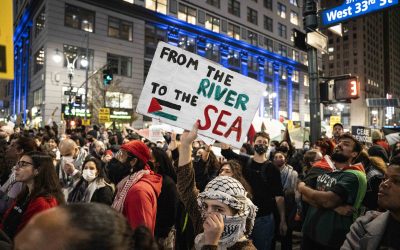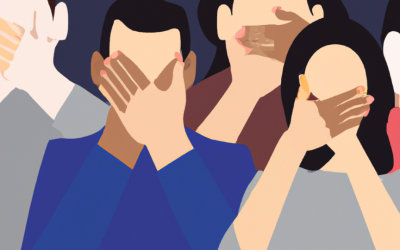The legacy of Pierre Elliott Trudeau is a controversial one. Some of us who lived through his years of leadership worship the man–others still despise him for The National Energy Program and The War Measures Act. Nevertheless, every Canadian knows his name. His is the legacy of a great man.
To me, perhaps the most important thing he stands for is his absolute conviction that every Canadian is of equal worth, regardless of ethnicity or family background. To Trudeau, those accidents of birth were simply not that important. In fact, as he saw it, each of us could choose how ethnic we wanted to be – or not be ethnic at all. This was Trudeau’s vision of the multiculturalism that has served this country so well -an outlet for ethnic pride, but not an avenue to chauvinism. An Irish Canadian could spend her day dancing Irish jigs at Irish festivals, or she could identify more as a garden variety Canadian. That was her business.
As long as that person’s “Irishness” did not hurt anyone or require non-Irish people to pay for the display of ethnic pride, it was up to that particular person how she wanted to identify. Just as “the state has no business in the bedrooms of the nation”, the state also has no business either preventing the person from exercising their ethnic identity or promoting that identity at the expense of other citizens. And so it went with all other ethnic groups, such as Chinese-Canadians, Jewish-Canadians, or Siberian-Canadians. Because we all have ancestors that came from somewhere. And we are all equally worthy as citizens of this great country, regardless of ethnic origin or time of arrival.
To Trudeau, it did not matter if your ancestors were old stock Québécois who came here by ship with Jacques Hebert, or United Empire Loyalists who paddled here up the Hudson River, or a Filipino family who arrived by jet last year- or for that matter, a group of Siberians who walked here via the land bridge thousands of years ago. Every Canadian’s citizenship is of equal value.
And we should bear in mind that not all of these people had it so easy. The Québécois facing death at La Chine, or the Ukrainian woman watching her child being buried at that forlorn little cemetery near Rossburn, Manitoba, where so many tiny scarlet fever victims were buried, the Metis family, who were considered the lowest of the low, or the Chinese “coolie” being told that he and his yellow people were not welcome here – after they had built the railroad that tied this country together. Or consider the Mennonite family huddled in their sod hut while the prairie wind howled, determined to survive their first Canadian winter, or the Siberian who was by now called an Indian, who was isolated and forgotten on a reserve. Or the Jew, who was told that his family, who were facing extinction in the bloodlands of Europe, were not welcome here. Or the Syrian family who arrived last week from Hell.
It was not so easy for them.
Pierre Trudeau told us that however we got here, and whoever we are, we are all equals, and we all have an equal right to be here. His one failure was his aborted attempt to bring an end to the Indigenous apartheid system that their leaders insist must stay. His message is a very important one.
But are we in danger of forgetting it, with all the emphasis today on bizarre concepts like “white privilege”, an insistence on dividing people into artificial categories of “oppressed and oppressor”, and the modern obsession with finding “victims” almost everywhere?
For example, an MP of colour recently told another MP to “check your privilege”, and a Senator made a similar outlandish statement. Does it occur to these extremely well paid and highly privileged people, as they are virtue signalling that they are “victims” because of their racial or ethnic background, that the minimum wage waitress who is serving them their afternoon tea might not consider herself “privileged” in comparison to them, just because she comes from an ethnic background they have categorized as “privileged “? Does this example not show the victim game for what it is – an exercise in hypocrisy?
Because if you insist on finding victims, or oppressed people, you only need to go back a couple paragraphs to the Chinese, the Jews, the Ukrainians, and you name it. Those “oppressed victims” come in all colours and would certainly qualify as oppressed victims if that is what they chose to call themselves.
But that is not what they chose to do.
Chinese-Canadians were as badly treated as any, but they now form a demographic that is punching way above its weight in terms of family income, longevity, etc. The same goes for Jewish-Canadians. And what about those Ukrainians, who were despised as inferiors by so many? Many successful prairie families now proudly carry their Ukrainian heritage. Or the descendants of escaped slaves at Africville, Nova Scotia, who had as difficult a start as can be imagined. Many distinguished Canadians came from those humble beginnings. That Filipino family that arrived last year without a penny to work in a humble meat processing plant, is now building a house, and sending their children to university. The Syrian family is getting its bearings and will soon be on a path to do the same thing. These people refused to think of themselves as victims in spite of the adversity they were faced with. Instead, they overcame it. Their racial and ethnic background was an irrelevancy.
Because, here’s the thing: All humans, regardless of ethnic or racial background, share the same 99.9% of the human genome. We are all virtually the same.
So, when we are told by one group or another that they are oppressed, or are victims, we should remind them that you are only a victim if you see yourself that way. Think of these other Canadians who have faced adversity and follow their example.
Because Pierre Elliott Trudeau was right – ethnicity and racial background are no big deal.



